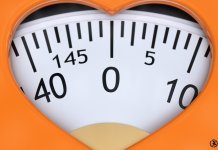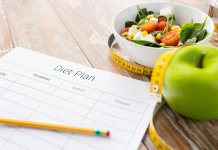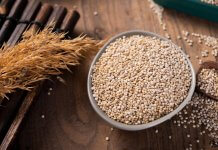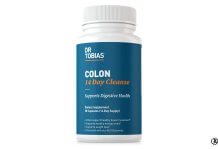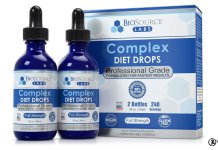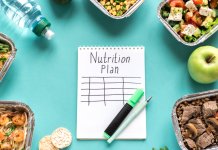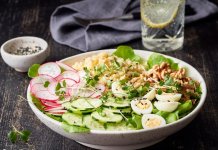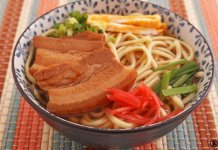I get commissions for purchases made through links on the site. As an Amazon and Clickbank Associate I earn from qualifying purchases. Learn more.
If you have been looking for diets for weight loss, you must have come across the military diet. The diet claims to help people lose up to 10 pounds a week. But this sounds too good to be true, right?
This detailed guide will discuss the military diet- from how it works, the meal plans, pros and cons, and answer some frequently asked questions.
Let’s get started.
Estimated reading time: 11 minutes
Table of contents
- The diet claims to help people lose up to 10 pounds a week.
- The military diet is a weight loss program based on eating low-calorie meals.
- It is important to mention that the military weight loss diet doesn’t indicate it’s a diet for people in the army.
- The military diet is divided into two parts- a 3-days meal plan, followed by four days off.
- You can snack and drink anything during your off days as long as you do not exceed the daily calories.
What Is The Military Diet?
Also called the 3-day diet, the military diet is a weight loss program based on eating low-calorie meals. You must follow a 3-day meal plan and then have four days off where you eat low-calorie meals. One can repeat this weekly plan until one achieves desired weight loss goals.
This diet requires one to eat low-calorie foods and those high in protein. You shouldn’t snack when on a military diet, and you can only drink herbal teas such as green tea, coffee, or water.
There are also substitutes for everything on the military diet menu, and thus vegan and vegetarian can follow this diet.
In other words, the military diet is based on principles of restricting calorie intake, controlling portions, and counting calories. We won’t lie, this is an intense weight loss program, and thus there are several side effects to expect, which we will discuss later on in this guide.
It is important to mention that the military weight loss diet doesn’t indicate it’s a diet for people in the army. There are claims that the diet originated from the British Military, but these are unproven claims.
Therefore, this diet is not affiliated with or endorsed by any army. The word military is just meant to refer to the motivation and discipline needed to follow this diet.
- Beginners Guide to Mediterranean Diet: Benefits and Tips – The Mediterranean diet go beyond the prevention of some dietary diseases such as heart problems, cancer, diabetes, and hypertension to general benefits including good mental health, good mood, and consequently a significantly longer life.
How Does the Military Diet Work?
As we mentioned, the military diet is divided into two parts- a 3-days meal plan, followed by four days off. You have to be disciplined with food recommendations in this diet for you to get the best results.
In terms of calories allowed in this military diet, you get to eat 1100-1400 calories in a day. Since this diet is based on calorie counting, the diet menu is strict in the quantities one should eat, and there are specific measurements for each meal. The diet recommends three meals in a day- breakfast, lunch, and dinner. Remember, there are no snacks allowed. Water, coffee (unsweetened), or herbal teas are also allowed on the military diet.
For the remaining four days of the week, you need to follow a set meal plan. You are encouraged to keep your calorie intake to under 1500 during off days to get the best results.
The military diet claims to help you lose weight through calorie restriction. Restricting calorie intake has been found to help with weight loss, especially when done for a considerable period.
Of course, it is important to mention that the military diet might not be sustainable in the long term, but it delivers results in the short term,
The choice of foods recommended in the military diet is also said to help speed up metabolism and weight loss. However, these claims are not backed by scientific figures.
Let’s discuss the foods you should eat and those you shouldn’t.
Foods Accepted In the Military Diet
As we mentioned, the 3-day military diet is quite restrictive, and only a set of foods are recommended. They are;
- Bananas
- Meat
- Saltines
- Eggs
- Vanilla ice cream
- Apple
- Broccoli
- Bread
- Grapefruit
- Green beans
- Tuna
- Cottage and cheddar cheese
- Black coffee or herbal tea
Alcohol, milk, and sweeteners are prohibited in this diet. Also, you should not snack in between meals.
All the above foods can be substituted with equivalent ones for vegetarians, vegans, and those following a gluten-free diet.
During the off days (the remaining four days of the week), you shouldn’t follow a set meal plan, but you should keep your total daily calories to under 1500. This means that you have to count calories. You can snack and drink anything during your off days as long as you do not exceed the daily calories.
As you noticed in the list of accepted foods in the military diet, not all of them are ‘healthy.’ Hot dogs, ice creams, etc., are junk foods, but they are meant to make this restrictive diet appealing.
- All you Need to Know About Soup Diets – A large number of people are looking for excellent ways to lose weight. A great way to lose weight is by using a soup diet. A soup diet refers to a diet that mostly consists of vegetable broths.
The 3-day Military Diet Plan
Here is what the 3-day diet plan looks like;
Day 1
Breakfast
- 1 slice of toast with a tablespoon of peanut butter
- A cup of unsweetened black coffee or herbal tea
- Half a grapefruit
Lunch
- A slice of toast
- A cup of herbal tea or black coffee
- ½ cup of tuna
Dinner
- A small apple
- Half a banana
- 85 grams serving of meat supplemented with a cup of green beans
- One cup of vanilla ice cream
Day 2
Breakfast
- A slice of toast
- Half a banana
- One boiled egg
- A cup of unsweetened herbal tea or black coffee
Lunch
- One boiled egg
- 5 saltine crackers
- A cup of cottage cheese
- A cup of herbal tea or black coffee
Dinner
- 2 hot dogs
- Half a cup of broccoli and half cup of carrots
- Half cup of vanilla ice cream
- Half a banana
Day 3
Breakfast
- A cup of black coffee or herbal tea
- An apple
- 1-ounce slice of cheddar cheese
- Five saltine crackers
Lunch
- A slice of toast
- A cup of herbal tea or black coffee
- One egg, either boiled or cooked
Dinner
- A cup of tuna
- One cup of vanilla ice cream
- Half a banana
Pros and Cons of the Military Diet
Pros
- It can help you lose weight fast
If you are looking to shed weight fast for an upcoming wedding or event, the military diet can help speed up your weight loss rate. From the many military diet reviews we have seen, you can lose up to 10 pounds within a short time.
However, be ready to experience side effects such as low energy levels and feeling sluggish during the 3-day diet period. We will discuss these potential side effects later on.
It is also important to mention that results may vary since our bodies are different. However, overall, the diet should help you lose weight fast.
- It is easy to follow
Since every meal is well planned, you don’t have to think about what to eat for dinner, breakfast, or lunch. For those on a busy lifestyle, you can even prepare the meals in advance. Another great thing is that the ingredients are accessible and easy to cook.
- It’s motivating to follow
Since you are only following the diet for three days and taking four days off, the diet tends not to be boring. Also, since the diet delivers great results quickly, you are likely to stay motivated as you see the fruits of your effort.
- The diet is cost-effective
Since the ingredients recommended are all locally available, you will find this diet quite affordable to follow. The military diet doesn’t require one to join a membership or exclusive groups.
Therefore, for those on a diet, this is a great diet plan to follow.
Cons
Following the 3-day military diet plan comes with several downsides, including;
- You may feel sluggish due to low energy levels
Often, this diet is labeled “crash diet” due to being extremely calorie-restrictive. Considering the daily recommended calorie intake for men should be 2500 and 2000 for women, the military diet can be too hard for some people as you shouldn’t surpass 1400 calories in a day.
While this calorie restriction brings about quick results, it is important to remember that our calories intake fuels our bodily function. Thus you may end up feeling sluggish, tired, and dizzy. This can affect your productivity and make it impossible for you to exercise.
- Possibility of having nutrient-deficiency
If followed for long periods, there is a possibility you will experience nutrient deficiency at some point. For example, the military diet lacks enough fiber, vitamins, and minerals needed for metabolism and good health.
Also, since it recommends many processed foods, which are often high in salt (sodium), it means you can experience instances of above-average blood pressure. This can put you at risk of heart attack and other health conditions.
Therefore, if you follow this diet for a long time, you need to track your health status.
- You lose water weight, instead of fat
This being a ‘crash diet’ mean that it is not sustainable for fat loss. In fact, you will get quick results in the short term because the body is losing water weight and not fat. However, if you follow it for some time, which is quite unsustainable, your body can burn fat deposits.
Other cons;
- It doesn’t include exercises
- It can take a toll on your mental health due to low energy levels
Let’s finalize this guide by answering several frequently asked questions.
Meal Prep Tips for Military Diet
Here are some meal prep tips to help you prepare and enjoy healthy, convenient meals:
1. Plan Your Meals:
- Start by planning your meals for the week. Decide what dishes you want to prepare, including breakfast, lunch, dinner, and snacks.
- Consider your dietary goals and preferences when planning. Make a shopping list based on your meal plan.
2. Choose Balanced Recipes:
- Opt for recipes that include a balance of protein, carbohydrates, and healthy fats. Include plenty of fruits and vegetables for vitamins and minerals.
- Look for recipes that are easy to prepare in advance and store well.
3. Invest in Quality Containers:
- Invest in a variety of food containers, including glass or BPA-free plastic containers, to store your prepared meals.
- Make sure the containers are airtight and leak-proof to keep your food fresh.
4. Prep Ingredients in Advance:
- Dedicate time to wash, chop, and portion your ingredients in advance. This can include cutting up vegetables, marinating proteins, and pre-measuring grains.
- Having ingredients ready will make assembling meals quicker and more convenient.
5. Cook in Batches:
- Cook larger batches of proteins, grains, and stews. Portion them out into individual servings and refrigerate or freeze them for later use.
- This saves time on busy days when you don’t feel like cooking from scratch.
6. Use the Freezer:
- Utilize your freezer to store meals for longer periods. Many dishes, including soups, casseroles, and stir-fries, freeze well.
- Label containers with the date so you can keep track of freshness.
7. Portion Control:
- Pay attention to portion sizes to avoid overeating. Use a kitchen scale or measuring cups to ensure accurate portions.
- Pre-portion snacks into small containers or bags to prevent mindless snacking.
8. Cook Versatile Ingredients:
- Cook versatile ingredients that can be used in multiple dishes. For example, grilled chicken can be used in salads, wraps, or as a main dish.
- Make a big batch of a basic sauce or dressing that can be used on various meals.
9. Stay Organized:
- Keep your kitchen organized. Label containers with contents and dates.
- Create a meal prep schedule or calendar to help you stay on track.
10. Experiment and Have Fun:
- Don’t be afraid to experiment with different recipes and ingredients. Meal prep can be an opportunity to try new foods and flavors.
- Enjoy the process and the convenience of having healthy meals ready to go.
Remember that meal prep is a flexible process, and you can adjust it to fit your preferences and lifestyle. It’s a valuable tool for maintaining a nutritious diet, saving time, and reducing food waste.
Conclusion
The military diet involves restricting calorie intake for three days then resuming to your regular diet the next four days of the week. To optimize the result, you should reduce calorie consumption on the four off days too.
The military diet may be effective for those who want to lose weight quickly; it is not sustainable over a long period.
A good way of losing weight is eating healthily and living an active lifestyle that integrates regular workouts.
Frequently Asked Questions about the Military Diet
There are no conclusive studies on the 3-day military diet. However, reviews are claiming that individuals lost considerable weight after one week of following this diet.
The truth is that you lose weight when you burn more calories than you consume. However, in the first weeks of following this diet, you will lose water weight and not fat weight.
After this, you can follow a more sustainable approach to dieting while working out.
The military diet is likely to be safe for an average person but may not be sustainable over a long period. Also, considering that it doesn’t recommend a regular intake of vegetables, you may experience nutrient deficiency if you follow it for a long time.
The truth is that the bold claim by the military diet creators that one can lose 10 pounds in a week can be too good to be true.
However, if you are overweight, you can lose considerable water weight when following a calorie-deficient diet like the military diet, as the body will rapidly burn glycogen for energy. Remember that you will regain this weight once you get back to regular diets.



